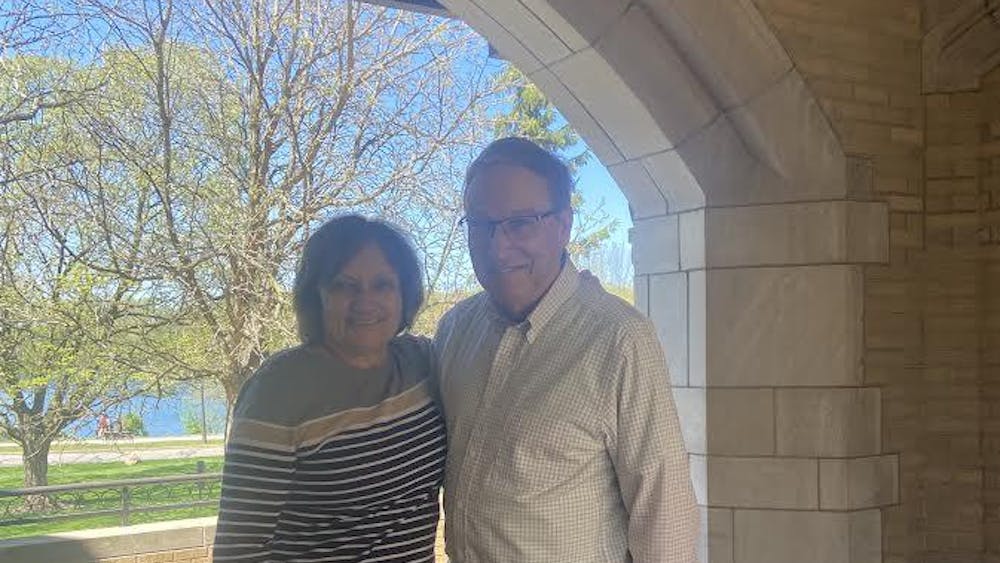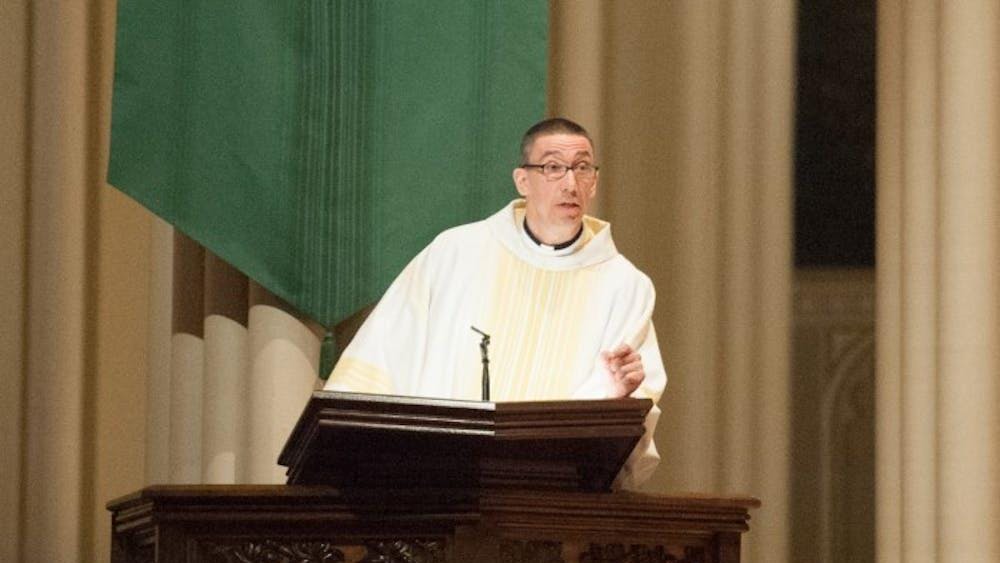When Notre Dame Professor Cara Ocobock set out in August 2020 to create a fun science kit for her young niece’s birthday, she had no idea she was sparking a movement.
Searching for science kits online, Ocobock grew frustrated with the limited existing options, many of which seemed “too kiddish even for kids.” They didn’t allow children to set up the process of science — ask a question, conduct the experiment, analyze the results — and even presented science as magic, which made Ocobock uncomfortable as a scientist.
So Ocobock decided to make one herself. She created a manual, inspired by experiments she found online, and compiled the ingredients to give to her niece. She posted several pictures on Twitter as she developed the kit and was shocked to find her tweet going viral, with people looking to replicate science kits for their own children.
“I think I responded to over 1200 Twitter direct messages,” Ocobock said.
She realized there was an extremely high demand as children were stuck at home due to the COVID-19 pandemic.
Since August, Ocobock has developed 28 experiments inspired by resources she found online. There are even holiday-themed expansion packs for Halloween and Christmas.
“I had a very intentional layout and design for this lab manual that was consistent from experiment to experiment so kids knew what to expect and why,” Ocobock said.
This design includes instructions for conducting the experiment as well as an explanation of the results to help students learn the “core scientific concept.” Each experiment in the manual also includes a description of a type of scientist who would use these concepts in their job and a profile of a woman who works as that type of scientist.
A book publisher reached out to Ocobock about the project, but she turned down the offer because she said “that meant there was now a price tag on it, and that would limit access to who could actually get [the lab manuals].” She instead decided to put PDFs on Google Drive and share the link on her website.
In order to achieve equity, Ocobock’s work couldn’t stop at just the lab manual.
“They can access the lab manual, but can they access the magnets or the borax or the benzoic acid?” Ocobock said. “If they can’t get the materials, what good does it do?”
Overwhelmed by the demand, Ocobock reached out to the Science Policy Initiative at Notre Dame, a graduate student organization that examines the intersection of science and engineering and public policy. Community director Morgan Munsen immediately jumped at the chance to expand the project.
Munsen first acquired funding from Notre Dame’s Center for Social Concerns and the National Science Policy Network. This enabled Ocobock, Munsen and their team to make 150 science kits for students at St. Adalbert Catholic School in South Bend, which was chosen as the recipient on the basis of its diverse and low-income student population.
Munsen said one of their first steps was to pay to have the entire manual translated to Spanish to meet the needs of the many St. Adalbert students whose primary language is Spanish. The translation was also posted to Ocobock’s website to reach a wider audience.
“That was a really great moment because we could focus on accessibility on a large scale,” Munsen said.
Munsen and Ocobock used their funding to buy materials that would not be accessible to many families and to partner with the Hammes Bookstore to package the kits.
“We tried to ... consider accessibility and sustainability and making every single aspect of this work,” Munsen said.
For example, the kits were packaged in Notre Dame backpacks that the students could reuse for the school year.
The science kit project continues to grow. Munsen recently secured additional funding from the National Science Policy Network to make more advanced science kits for older students at St. Adalbert.
In addition, staff at St. Joseph County Library asked Ocobock for 500 science kits that could be given out during their Science Alive month in February. With assistance from the Eck Institute for Global Health and the Hammes Bookstore, Ocobock granted their request.
Ocobock said she hasn’t had much time to consider the future of the science kits project, as it was never something she intended to go beyond her family. As a human biologist, she researches how humans physiologically and culturally cope with extreme physical circumstances. Science kits and educational equity are not her usual work.
However, she said she is open to new experimentations and is currently in the process of developing materials for a summer science camp at Notre Dame and for under-resourced schools across the country.
“I am always more than welcome for people to contact me and find ways that we can collaborate and move it forward,” Ocobock said.













